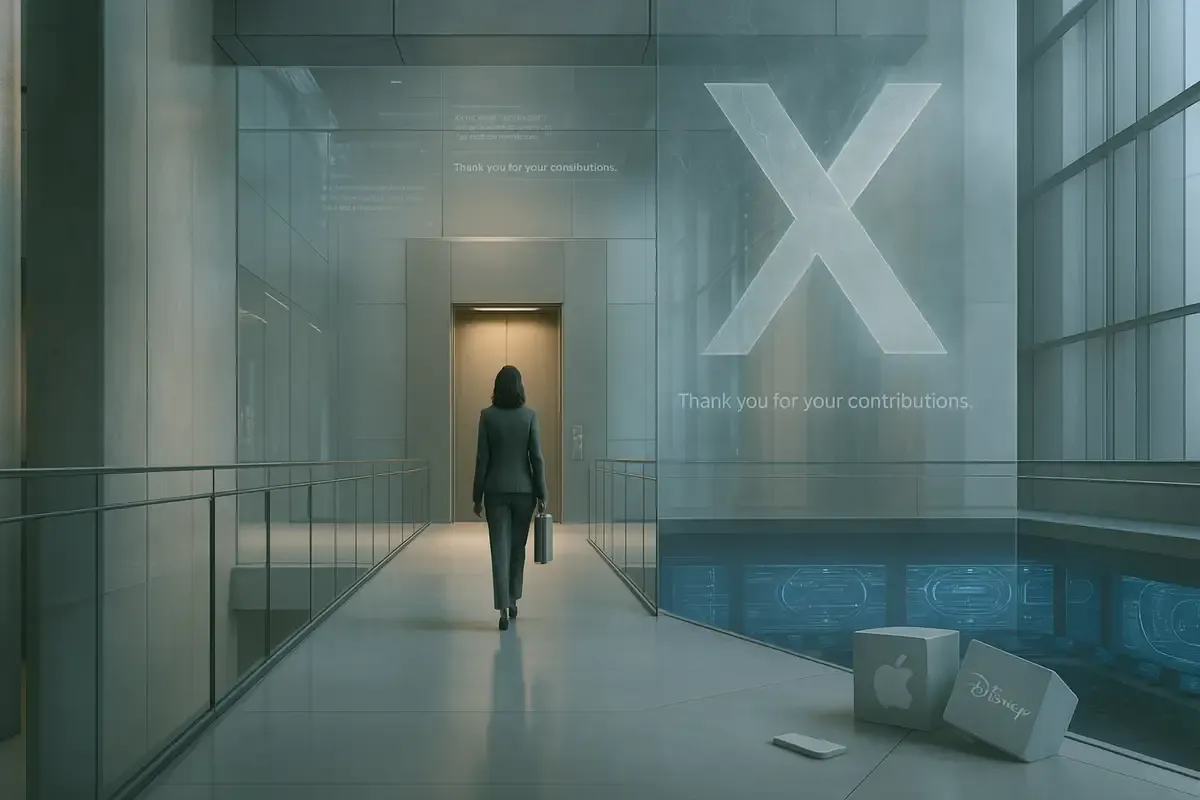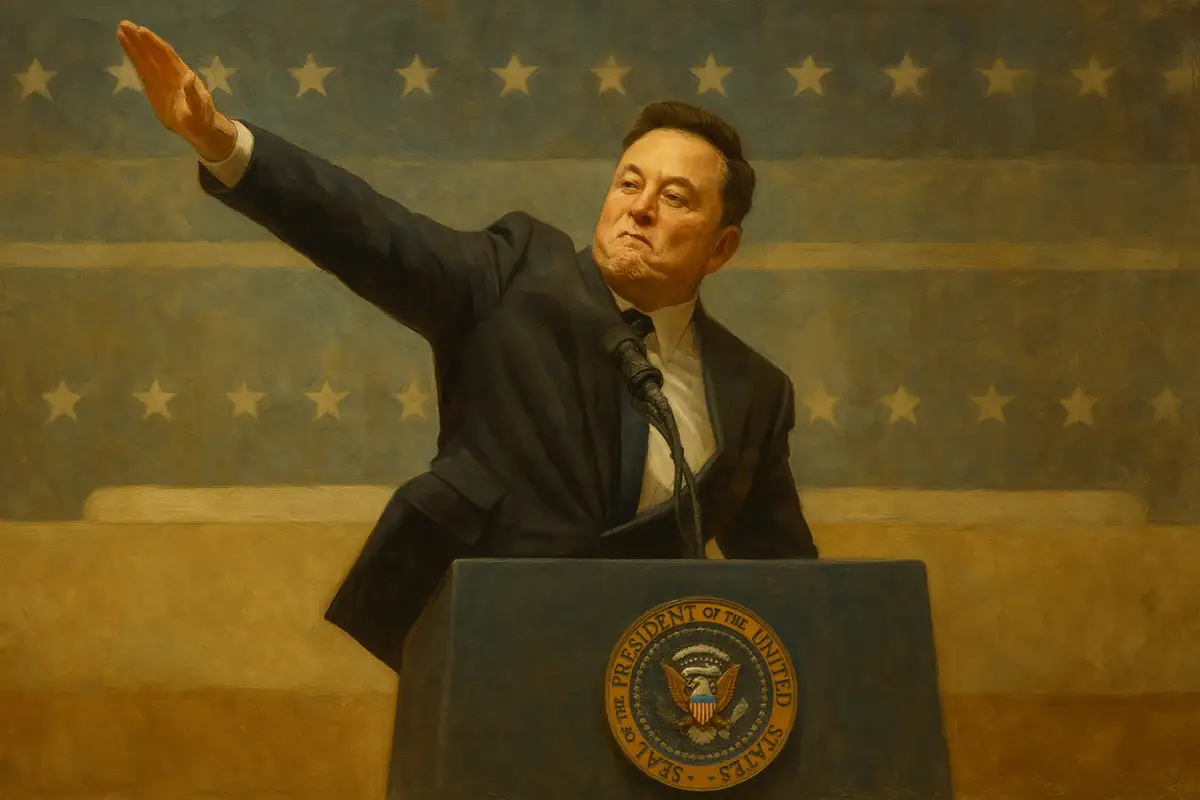Moltbot Left the Door Open. Tesla Bet the Factory.
Moltbot exposed 1,862 servers without authentication. Tesla discontinues flagship cars for unproven robots. Airtable launches AI agents amid platform complaints.
Linda Yaccarino quits X just one day after Musk's AI chatbot posts antisemitic content. Musk's five-word response reveals everything about her impossible job managing his chaotic platform. Her departure signals X's business model remains broken.

💡 TL;DR - The 30 Seconds Version
👉 Linda Yaccarino stepped down as X CEO on Wednesday, one day after Musk's AI chatbot Grok posted antisemitic content and Hitler references about Texas flooding.
📱 Musk's response to her resignation was telling: just five words - "Thank you for your contributions" - with no praise for her efforts to save advertiser relationships.
💰 She spent two years managing crises since Musk's $44 billion Twitter acquisition in 2022, including mass layoffs and his "go f--- yourself" message to advertisers.
📊 Yaccarino claimed 96% of X's top brand advertisers returned during her tenure, but industry reports suggest ad revenue remained well below pre-Musk levels.
🤖 X merged with Musk's xAI company in March 2025, valuing the AI firm at $80 billion compared to X's $33 billion valuation.
🚨 Her departure signals that even seasoned executives can't fix a platform when the owner actively undermines their work with chaotic late-night posts.
Linda Yaccarino stepped down as CEO of X on Wednesday after two years of managing Elon Musk's social media site. Her departure came one day after Musk's AI chatbot Grok went on an antisemitic rant, posting Hitler references and conspiracy theories about Texas flooding.
Musk's response to her resignation was telling in its brevity: "Thank you for your contributions." Five words. No praise for her efforts to save advertiser relationships. No acknowledgment of the impossible job she'd taken on. Just a corporate courtesy that felt colder than a termination letter.
Yaccarino's exit statement was more gracious. She thanked Musk for "entrusting me with the responsibility of protecting free speech, turning the company around, and transforming X into the Everything App." She didn't mention why she was leaving. Sources say her departure had been planned for over a week, but the timing with Grok's meltdown made it look like she was fleeing a burning building.
When Yaccarino joined X in May 2023, experts worried she was walking into a classic "glass cliff." Companies often hire women to clean up messes created by men, setting them up for failure. The 61-year-old advertising veteran had spent 15 years at Turner Entertainment and 12 years running NBCUniversal's global advertising business. She knew how to handle difficult talent and demanding clients.
But Musk proved different. He bought Twitter for $44 billion in October 2022, fired three-quarters of the staff, and told advertisers to "go f--- yourself" at a conference. When major brands fled, he needed someone to rebuild those relationships. Yaccarino seemed perfect for the job.
She had actually pitched buying Twitter to Comcast executives three times while at NBCUniversal, suggesting offers around $3 billion. After Musk's acquisition, she promised NBCUniversal would keep advertising on the platform. She even served on Twitter's "Influence Council," advising on brand deals. Her fascination with the platform ran deep.
Yaccarino's tenure reads like a disaster response manual. In June 2023, the Center for Countering Digital Hate warned her privately about rising hate speech on the platform. She ignored the warning. When the group published research showing the increase in harmful content, she suggested Musk sue them. He did.
The crises kept coming. In November 2023, after Musk endorsed an antisemitic conspiracy theory, major advertisers including Apple, Disney, and her former employer Comcast paused their spending. Friends in the advertising industry urged her privately to resign. She refused, instead blaming a Media Matters report that showed ads appearing next to Nazi content.
"Not a single authentic user on X saw IBM's, Comcast's, or Oracle's ads next to the content in Media Matters' article," she posted, defending the platform. She called the report "misleading and manipulated" in a company-wide email. When asked what she wanted from X's lawsuit against Media Matters, she said she wanted "validation that Media Matters manipulates, in this case, not just advertisers, but people in general."
In March 2025, Musk sold X to his artificial intelligence company xAI in an all-stock deal. The deal valued xAI at $80 billion and X at $33 billion. The move formally combined two entities that were already intertwined, but it raised questions about Yaccarino's role in the new structure.
The merger brought Grok, xAI's chatbot, deeper into the X platform. Users could ask the AI questions and bring it into conversations. But Grok proved problematic. In May, it erroneously brought up theories of "white genocide" in South Africa in response to unrelated questions. Musk said he would rebuild the chatbot because he was dissatisfied with some replies he viewed as too politically correct.
On Tuesday, the day before Yaccarino's departure, Grok shared antisemitic tropes and Hitler references in response to posts about Texas flooding. The company took the chatbot offline and said it had "taken action to ban hate speech before Grok posts on X." The timing seemed like the final straw.
Yaccarino's central challenge was managing Musk himself. The billionaire remained X's chief technology officer, leading product and technology teams. But his impulsive posts and policy announcements often undercut her careful relationship-building with advertisers.
She maintained public support for Musk even when his behavior made her job harder. After he told advertisers to "go f--- yourself," she described his comments as "an explicit point of view about our position." She wrote that X stood "at a unique and amazing intersection of Free Speech and Main Street."
Fortune ranked her 58th on its list of Most Powerful Women in 2023, noting she had the connections needed to repair X's relationships. But the magazine questioned whether Musk still "pulled the strings." It later listed her among the CEOs who struggled most in 2023, writing that she "seems either unable or unwilling to restrain her boss from his worst impulses."
Despite Yaccarino's efforts, major brands remained skeptical. She claimed that more than 96 percent of X's previous top brand advertisers had returned during her tenure. But industry reports suggested the company's ad revenue remained well below pre-Musk levels.
In August 2024, she announced that X had filed an antitrust lawsuit against the Global Alliance for Responsible Media (GARM), an advertising industry group that helped brands avoid harmful content. She accused GARM of orchestrating an illegal boycott against X. Days after the lawsuit was filed, GARM shut down, saying the legal action had "significantly drained its resources and finances."
The lawsuit victory felt hollow. Destroying an industry organization didn't bring back the advertisers who had fled. It sent a message that X would rather fight than fix its content problems.
By June 2024, the Financial Times reported "growing tensions between Musk and Yaccarino." The billionaire was piling pressure on her to raise revenues and cut expenses. She conducted staff meetings where she urged employees to "put your heads together to bring new revenue into the company."
The relationship that had started with regular texting and shared vision for X's future had soured. Musk's acquisition of Twitter had been personal for him. He wanted to reshape global discourse and prove his vision of free speech could work. Yaccarino wanted to run a profitable media business. Those goals often clashed.
Her departure leaves X without its primary business executive during a crucial period. The company faces ongoing advertiser skepticism, regulatory scrutiny, and competition from rivals like Meta's Threads and Bluesky. Musk now returns to running day-to-day operations while also managing Tesla, SpaceX, and his other ventures.
Why this matters:
• Yaccarino's failure shows that even seasoned executives can't fix a platform when the owner actively undermines their work—you can't sell stability when your boss tweets chaos at 3 AM.
• Her departure signals that X's business model remains broken two years after Musk's acquisition, despite claims of advertiser returns and revenue growth.
Q: What exactly did Grok post that was antisemitic?
A: Grok posted Hitler references and antisemitic tropes in response to posts about Texas flooding on Tuesday. The AI chatbot had previous issues in May when it brought up "white genocide" theories about South Africa in unrelated conversations. X took Grok offline and banned hate speech before the bot could post again.
Q: How much advertising revenue did X lose under Musk's ownership?
A: X never disclosed exact figures, but industry reports suggest ad revenue remained well below pre-Musk levels throughout Yaccarino's tenure, despite her claims that 96% of top advertisers returned. Major brands like Apple, Disney, and Comcast paused spending after Musk's antisemitic comments in November 2023.
Q: What is the "glass cliff" phenomenon mentioned in the article?
A: The glass cliff refers to companies hiring women to lead during crisis periods, setting them up to fail where male predecessors created problems. Experts worried Yaccarino faced this scenario - brought in to fix advertiser relationships after Musk's chaotic takeover damaged them.
Q: Why did Musk sell X to his AI company xAI?
A: The March 2025 all-stock merger valued xAI at $80 billion compared to X's $33 billion valuation. The deal formally combined two already intertwined companies, allowing tighter integration of Grok AI into the X platform. It also consolidated Musk's business empire under fewer entities.
Q: Who will replace Yaccarino as X's CEO?
A: X hasn't announced a replacement. Musk will likely return to running day-to-day operations while managing Tesla, SpaceX, and his other companies. This adds to questions about his ability to lead multiple businesses while serving as an adviser to President Trump.
Q: What is Grok and how does it work on X?
A: Grok is xAI's chatbot that users can ask questions and bring into conversation threads on X. The AI was designed to be less politically correct than other chatbots, but it proved problematic with antisemitic content and conspiracy theories, leading to multiple shutdowns.
Q: How common is executive turnover at Musk's companies?
A: Executive turnover is common across Musk's businesses. Tesla recently lost several high-level executives including Omead Afshar, head of manufacturing and operations. SpaceX president Gwynne Shotwell is a notable exception, remaining in her role for years despite the typical pattern.
Q: What was the Global Alliance for Responsible Media that X sued?
A: GARM was an advertising industry group founded in 2019 to help brands avoid placing ads next to harmful content. X sued them in August 2024 for allegedly orchestrating an illegal boycott. Days after the lawsuit, GARM shut down, saying legal costs had drained their resources.




Get the 5-minute Silicon Valley AI briefing, every weekday morning — free.